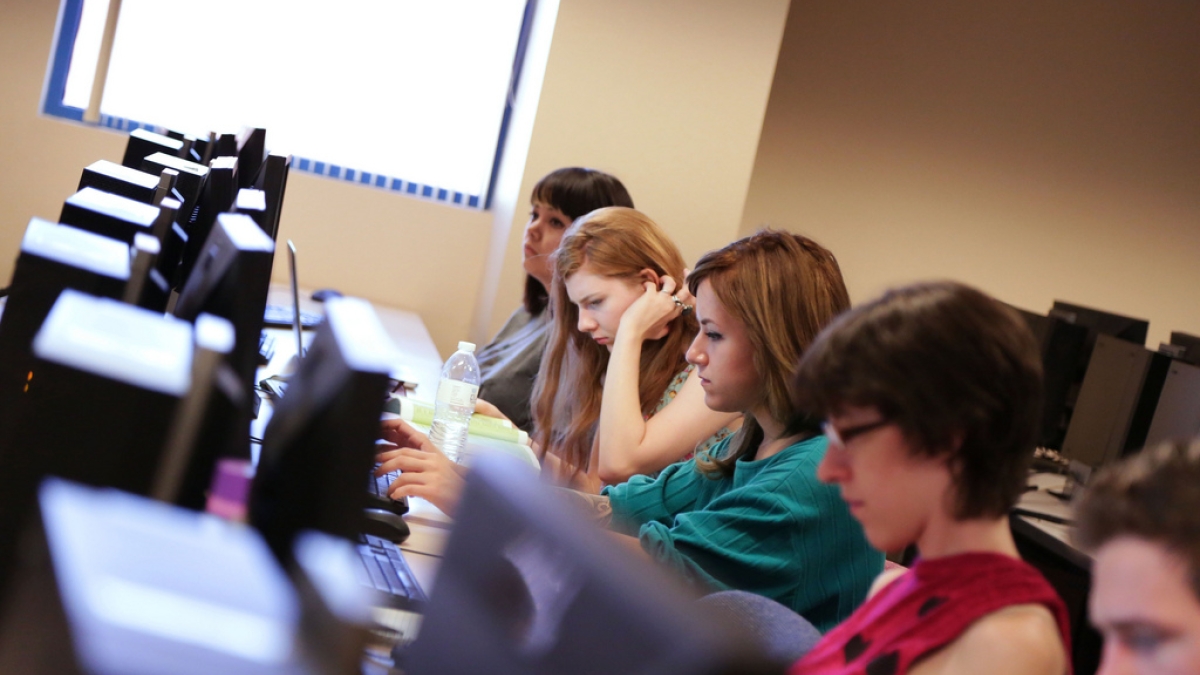New humanities lab to bridge disciplines, explore complex research questions

Arizona State University’s Institute for Humanities Research is set to launch the Nexus Laboratory for Digital Humanities and Transdisciplinary Informatics on Wednesday, Nov. 20.
The lab will drive digital humanities research projects at ASU and foster transdisciplinary partnerships between departments, schools and colleges to explore complex research questions in which the humanities can play a vital role.
The Nexus Lab’s first director, Michael Simeone, combines his doctorate degree in English from the University of Illinois with digital and computational humanities skills, and has extensive experience in blending humanities research with digital technologies.
“The Nexus Lab for Digital Humanities and Transdisciplinary Informatics will play a key role at ASU,” said George Justice, dean of humanities at ASU’s College of Liberal Arts and Sciences. “It will help researchers incorporate digital and computational techniques into their scholarly work. The equipment – but more importantly the expertise of incoming director Michael Simeone – will help faculty with everything from solving complicated historical problems to preserving the past and the present.”
According to Justice, the research lab will, among other things, help ASU researchers navigate large, complex datasets that are a challenge to explore through traditional database management or processing tools, and will prove as important to humanities research as to business analytics or the social sciences. He said that under Simeone’s direction, the facility would allow ASU researchers to develop successful proposals for funding their projects.
Sally Kitch, director of Institute for Humanities Research and a Regents’ Professor of women and gender studies, added that humanists can discover additional research directions through building skills in topic modeling, basic natural language processing, content analysis, text mining, network analysis and other areas of the digital and computational humanities.
“Digital technologies allow us to address new questions, many of which can bring humanities perspectives into new areas," Kitch said. "For example, with new techniques for 'scraping' data from online news sources, social media and blogs, humanists have even more capacity to gather and analyze the cultural narratives and metaphors that drive public opinion and policies about sustainability and climate change.”
“Take, for example, planning an expansion of a city as big as Chicago,” Simeone explained. “To ensure the project’s success, experts from fields such as public health, statistics, architecture and engineering would be invited to the conversation, but not humanities. However, if humanists engage data to ask research questions, then they can enhance their contributions to social and cultural questions through fields such as medical humanities, environmental humanities and digital media studies.
"The humanities, therefore, become more relevant to the conversation and bring insights into issues facing expansion and big cities.”
Simeone said that at ASU, digital and computational humanities will play the role of a bridge, helping bring disciplines closer to venture into uncharted territories of collaborative research. Kitch agreed.
“The watchwords of our Nexus lab are capacity, collaboration and consultation,” she said. “We believe that the lab advances the transdisciplinary mission of the New American University. Digital humanities help create new associations that drive innovative approaches to understanding the full array of ideas, beliefs, values, practices, relationships, products, performances and meanings that constitute humanistic study.”
The IHR Nexus Laboratory for Digital Humanities and Transdisciplinary Informatics, located on the fourth floor of Coor Hall, will officially launch Nov. 20. The ribbon-cutting ceremony is set to take place in the reception area at 10:30 a.m., followed by a tour and an open house.
The launch activities will continue on Thursday, Nov. 21. Matthew Gold, associate professor of English and Digital Humanities at City Tech and the Graduate Center of the City University of New York (CUNY) will deliver a keynote lecture titled “Digital Humanities, Recursive Communities, and the Future of Scholarly Communication” at 2 p.m. The last day of launch events on Friday, Nov. 22 will witness a round table on the topic “Envisioning Humanities Research through Digital Technologies,” between 9:30-11 a.m.
Please RSVP for the events at http://ihr.asu.edu/news-events/events.